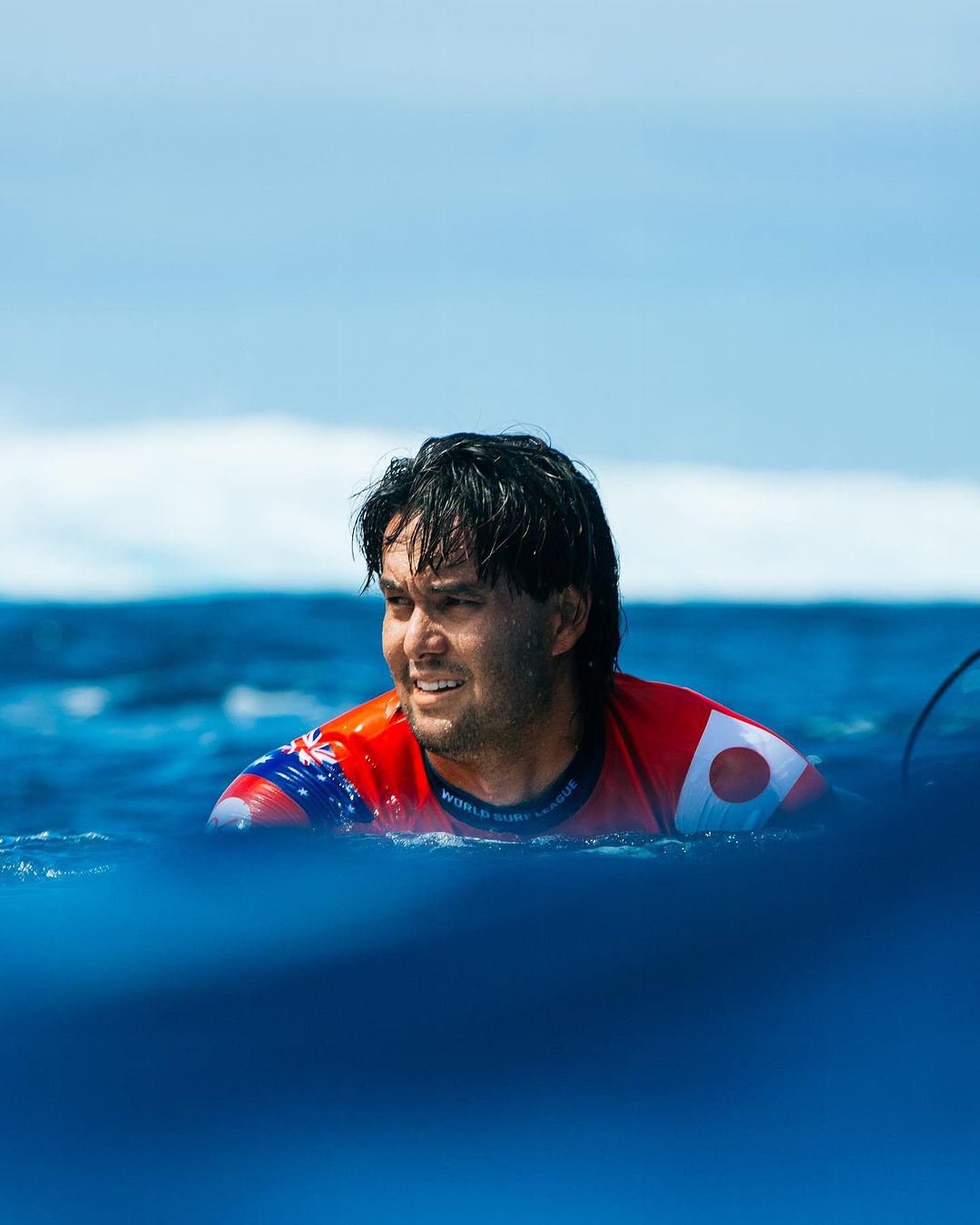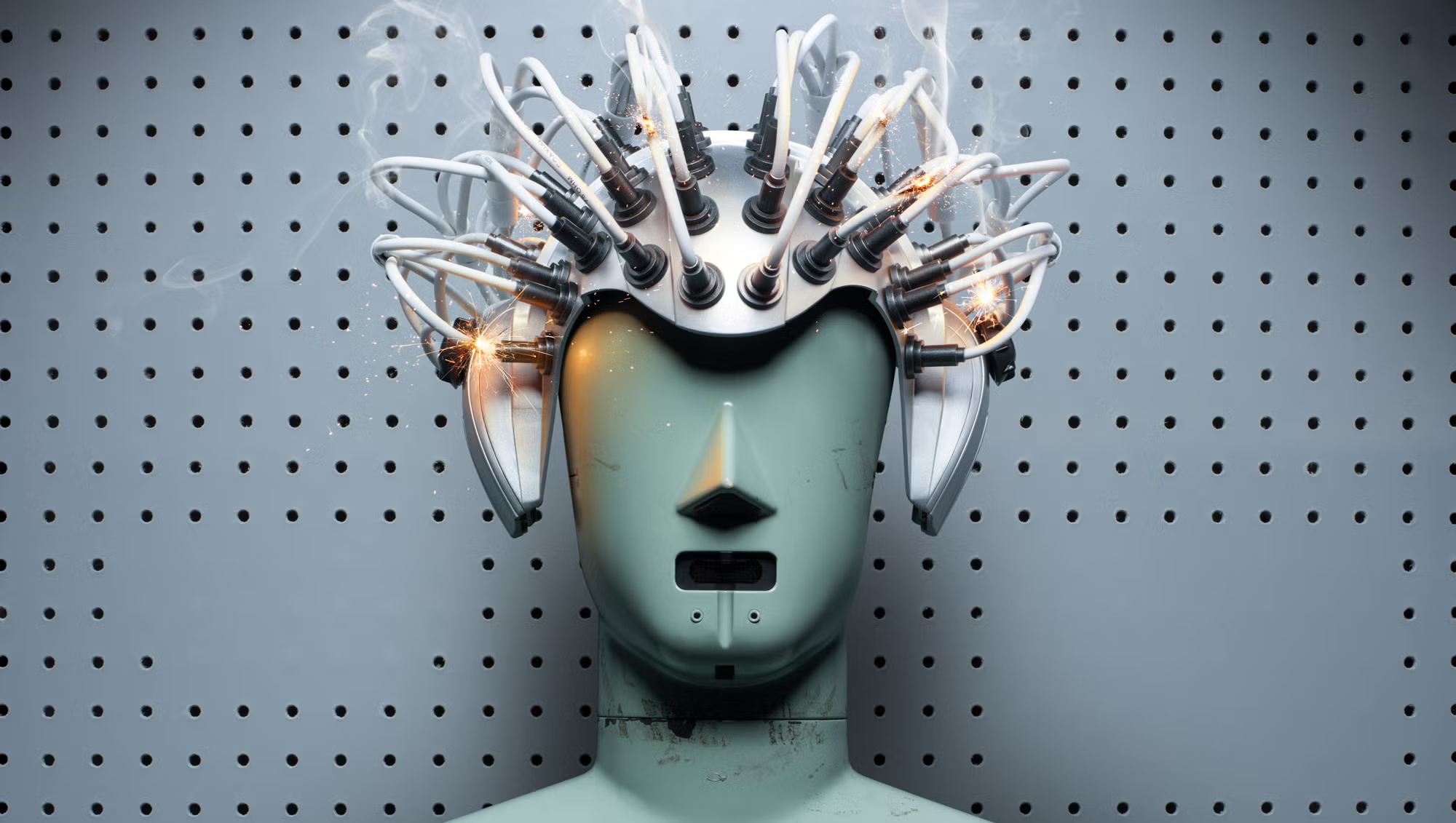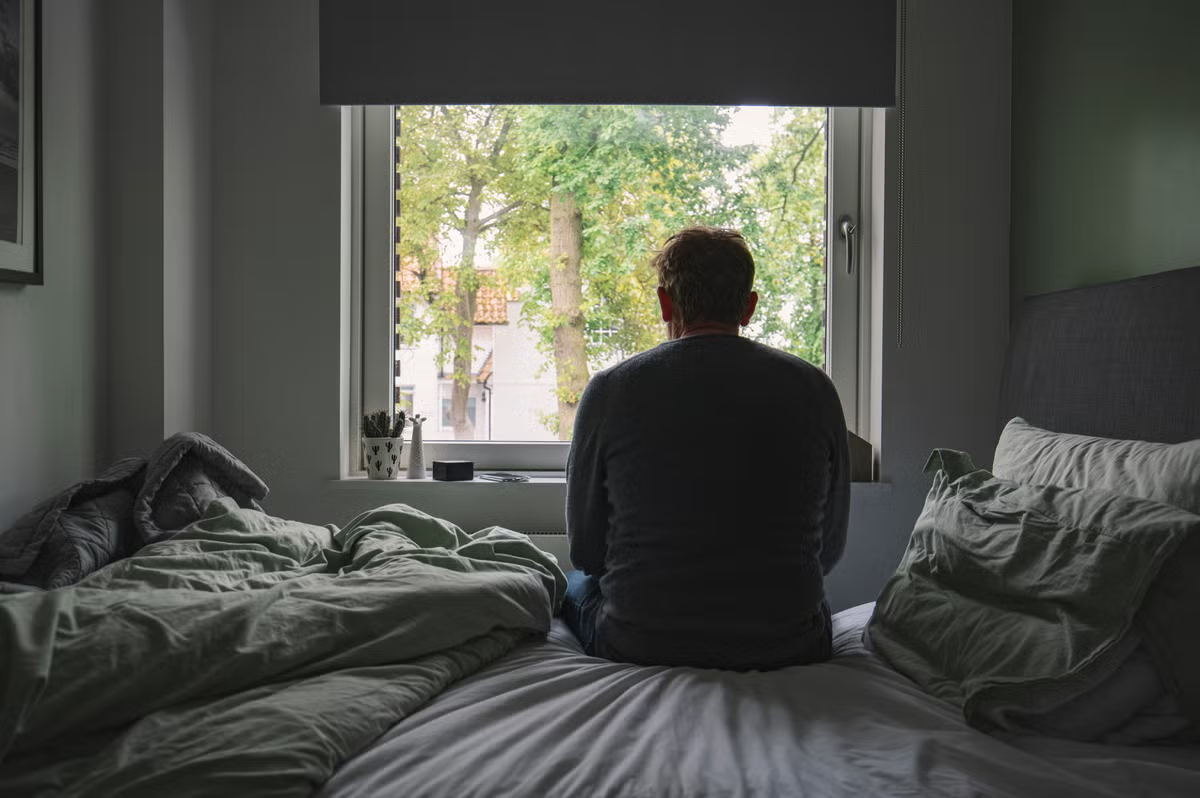CONNOR O’LEARY IS living out his wildest dreams. After narrowly landing inside the WSL Championship Tour’s mid-season cut line following the Margaret River Pro, O’Leary has ensured he’ll ride out the rest of the 2024 season among surfing’s elite, with a shot at a world championship title.
While O’Leary is one of the world’s best surfers, you wouldn’t know it from his humility. When we congratulate it him on securing another season at the highest level of his sport, O’Leary is quick to demur. “It came down to the wire in the end, and I certainly wasn’t doing myself any favours out there,” he says.
He may play down his own abilities, but O’Leary has earned his position at surfing’s pinnacle, and as he tells Men’s Health during a phone call from his coastal home in Lennox Head on New South Wales’ North coast, that’s exactly where he wants to be. “Being amongst the best surfers in the world, catching good waves and performing at the highest level, there’s not much better than that,” he says. “I feel like I’m surfing well at the moment, just running off confidence and enjoying myself, really. You’ve got to do what you love, and I’m doing that at the moment.”
Growing up in the seaside Sydney suburb of Cronulla with a surfing champion for a mother and a similarly surf-dedicated father, you could say that it was inevitable that O’Leary would ascend to the lofty heights of pro surfing. “They’d take me on their weekend trips up and down the coast. I guess being immersed in the culture led me to love everything about surfing and the ocean,” O’Leary says, explaining the origins of his enduring kinship with water. “There’s something about it that’s so meditative and spiritual. You jump in and you feel like nothing matters.”
Despite his nearly immediate introduction to the sport, O’Leary’s early experiences in surfing are not what you’d expect from someone who is now one of the best in the world at what he does. Most WSL surfers grow accustomed to dominance in their childhoods, winning almost every contest they enter. Moreover, a junior world championship victory is practically a requirement of entering the sport’s top tier – which only has room for 36 surfers. But there was no steady procession of trophies spurring O’Leary on to a career in pro surfing, and no lucrative sponsorships guiding his choice in career path.
“I was so passionate about contests growing up, but I didn’t win many,” O’Leary says, reflecting on those earlier days when his future wasn’t yet set. “I tell that to a lot of the kids coming up. I say ‘my junior career sucked, I didn’t really win any events’. They don’t believe me, but it’s true.” Years of hard work to improve his skillset was necessary for O’Leary, but while he continued to hone his craft, he wasn’t sold on pursuing surfing as a career until relatively late. “I was probably around 20 when I was like okay, maybe I can have a good crack at this.”
And have a good crack O’Leary certainly has. Debuting in the WSL Championship Tour in 2017, the 30-year-old made the final of the Fiji Pro during his rookie season, has been a fixture on the tour since, and finished the 2023 season ranked 11th in the world.
A week from now, in the first event since the championship tour’s field was halved by the mid-season cut, O’Leary will take part in the Tahiti Pro at the iconic Teahupo’o reef break. But next week’s event will largely serve as a precursor for another event being held at the same break less than three months from now. One that will be the biggest of O’Leary’s career so far: the Olympics.

INSTAGRAM | @connoroleary
BY NOW, the story of O’Leary’s journey to the Olympics has been well documented. But in case you’ve missed the headlines, here’s a quick refresher. Despite being born and raised in Australia, O’Leary will be representing Japan at the Games by way of his mother’s Japanese heritage, after switching his allegiance in 2023.
O’Leary previously competed under the Australian flag, but he’s been building up to the change for most of his career, having always intended to represent Japan once the time was right. “It’s been more of a when, not an if,” he explains.
O’Leary’s Japanese heritage is not something he’s rediscovered later in life. It’s always been a part of who he is, and he’s been immersed in Japanese culture since his childhood. “Being Japanese has been a huge part of my life since I was a kid. I actually learned Japanese before I learned English,” he says. “I spent a lot of time hanging out with my mum growing up, and we used to go to Sunday school in Hurstville with what was a big Japanese community.”
He may be unapologetically open about it now, but O’Leary didn’t always approach his heritage that way. When he was younger, O’Leary obscured his ethnicity from classmates in an attempt to fit in. “During school, I spent a lot of time trying to put that part of my life behind me. I wasn’t a very confrontational, confident kid growing up. I never wanted to be in the spotlight,” he says.
“Growing up in Cronulla, there wasn’t too much proud multiculturalism going on. Not being a confident kid, you’d get little remarks here and there. All I wanted to do was fit in, not to be put in the spotlight,” O’Leary continues. For context, O’Leary was twelve years old when the Cronulla riots swept across his hometown, during which ethnic minorities were targeted in a string of violent attacks. It’s not hard to understand why he had his reservations on being open about his culture. “I just tried to be as Australian as I could, I thought that would just get me through school.”
That stage in O’Leary’s life is well behind him. “I look back and go, that was pretty stupid,” he says. “With a bit of maturity, age and travelling, I’ve realised how dumb that mindset was. Being multicultural is super cool. I’m super proud of it.”
Now, O’Leary isn’t only embracing his heritage and championing Japanese culture, he also wants to be a role model for multicultural kids, and multicultural society at large. “I’d like to be able to show kids that they should embrace who they are and say, ‘be proud your culture’,” he says. “It’s just a matter of showing a bit of vulnerability and saying that, at the end of the day, I’m a normal person. People might look at me as a professional surfer, but I’m just a normal person. We all go through our different struggles, it’s just a matter of normalising that.”

INSTAGRAM | @connoroleary
IT’S ALL SYSTEMS GO at the moment for O’Leary as he sets his sights on Olympic glory. Kanoa Igarashi, who earned Japan’s only other berth in men’s surfing and will be competing alongside O’Leary, knows what it’s like to come close to the top. At surfing’s Olympic debut in Tokyo three years ago, Igarashi took home the silver medal, but O’Leary is aiming even higher. “To even be a part of the Olympics is going to be great, but I guess you’ve got to set higher goals for yourself. Gold is definitely the aim,” he says.
Physically, getting into the ideal condition for the Games doesn’t require too much more dedication than what O’Leary’s existing routine already demands. Due to the unrelenting nature of the WSL’s global championship tour, elite surfers like O’Leary are constantly putting in hours in the waves and training in their spare time – most also think of surfing as a lifestyle, rather than a job, so staying active in between competitions comes naturally. “My life is consumed by the world tour at the moment,” O’Leary says. “I just need to keep doing what I’ve been doing, there isn’t much better practice than competing at the highest level.”
Mentally, however, the heightened pressure of competing at the world’s biggest international sporting event does command greater attention. That’s an area O’Leary is focusing on. “As you get older, you find out more and more about yourself. For me, it’s just a matter of accepting that having rest days and doing nothing is okay,” he says. “Rest is just as important as being productive, instead of just constantly grinding and trying to push the limits, because eventually the wheels are going to fall off.”
To aid in his quest of achieving enhanced mental fortitude, O’Leary has been prioritising self-care. “I’ve been tapping into meditation for the past year or so,” O’Leary says, attributing his newfound interest to his erstwhile compatriot and fellow WSL surfer Ryan Callinan. “He’s gone through all these things in his life and I’ve been very fortunate to travel with him and ask him questions about meditation.
“It’s an extra bit of self-care that a lot of men feel like they don’t need to do just because of masculinity and ‘we’re okay’, things like that,” O’Leary says. “Taking the time for yourself and doing a bit of breath work and meditation is actually super important.”
Another crucial aspect of O’Leary’s Olympic preparations has been his morning routine. A creature of habit, O’Leary starts every day the same way. That is, with a cup of coffee from his coffee machine. “I love everything about coffee. I love drinking it, and I love the process of making it,” he says. “I have a La Marzocco Linea Micra, which is their new home-based coffee machine, and I’ve been so into it at the moment. And to be honest, I’m drinking so much more coffee.
“I’ve just become so addicted to the process and how advanced and precise you have to be in order to make good coffee,” O’Leary continues, attempting to put into words his infatuation with the machine. “It’s a morning ritual: wake up, barely have my eyes open, and just go to the machine, turn it on, and off we go. It’s part of my morning routine and it will be for the rest of my life.”

In 2021, O’Leary began wearing rash vests adorned with both the Australian and Japanese flags while in competition, despite nominally competing exclusively under the Australian flag. Since making the switch to represent Japan, the surfer has started wearing only the Japanese flag on both shoulders, eschewing the Australian flag entirely. Although, as he explains, the change does not mean he’s abandoning his Australian heritage. “I feel like I still do represent Australia just as much, and everyone that’s in my close circle looks at it the same way,” he says.
“When I was representing Australia, I still had a lot of Japanese fans and family cheering for me,” O’Leary continues. “After changing to Japan, I feel like the Australian surfing community is still backing me just as hard as when I was representing Australia. I’m very fortunate to be able to have two different cultures both supporting me.”
So, what if O’Leary does end up mounting the podium in Tahiti in just over two months’ time during the Olympics? Which nation will he have in his heart? “If I get to stand on the podium with a gold medal around my neck and hear the Japanese national anthem playing, I’ll still feel like I’m doing it for Australia too,” he assures us. It’s just as well, for while every other nation is limited to two entrants in Olympic surfing events, Australia, if only by sentiment rather than official rules, will have three.

INSTAGRAM @connoroleary
Related:
Aussie surf king Jack Robinson on Olympic dreams, the power of meditation and dad strength
Flite performance rider Matt McVeigh explains the rapid rise and undeniable appeal of efoiling















